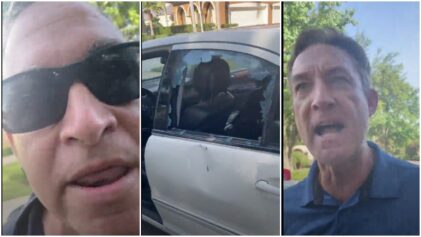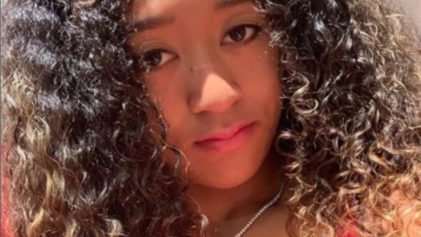The furor over the George Zimmerman acquittal shows no signs of abating, as the only nonwhite member of the jury, identified as juror B29, has come forward to say that Zimmerman “got away with murder.” But she concluded during the second day of deliberations that there wasn’t enough evidence to convict him.
In an interview broadcast today on “Good Morning America,” which released the interview transcript on Thursday, the woman, who is Puerto Rican and who allowed her face to be shown, said she went into deliberations wanting to convict Zimmerman.
“You can’t put the man in jail even though in our hearts we felt he was guilty,” said the juror, identified as “Maddie.” “But we had to grab our hearts and put it aside and look at the evidence.”
“George Zimmerman got away with murder, but you can’t get away from God. And at the end of the day, he’s going to have a lot of questions and answers he has to deal with,” she said. “(But) the law couldn’t prove it.”
At the start of deliberations, she said she was prepared to send Zimmerman away for second-degree murder.
“I was the juror that was going to give them the hung jury. I fought to the end,” said Maddie, who is a nursing assistant.
But she finally sided with the other jurors because she said there wasn’t enough evidence. She said she wrestled with her decision and had a hard time sleeping and eating.
She said she feels she owes Martin’s parents an apology.
“I’m hurting as much as Trayvon Martin’s mother because there’s no way that any mother should feel that pain,” said Maddie, a mother of eight, who just recently moved to Florida from Chicago.
In response, Martin’s mother, Sybrina Fulton, said the juror’s comments were “devastating.”
“It is devastating for my family to hear the comments from juror B29, comments which we already knew in our hearts to be true: that George Zimmerman literally got away with murder,” Fulton said.
Maddie is the second Zimmerman juror to come forward, after juror B37 last week in an interview with Anderson Cooper on CNN outraged many when she said Zimmerman was “justified in shooting Martin.”
“I think both were responsible for the situation they had gotten themselves into,” she said. “I think they both could have walked away.”
“I think George Zimmerman is a man whose heart was in the right place, but just got displaced by the vandalism in the neighborhoods, and wanting to catch these people so badly that he went above and beyond what he really should have done,” B37 said. “But I think his heart was in the right place. It just went terribly wrong.”
Maddie did agree with B37 that the case wasn’t about race. Asked whether the case should have gone to trial in the first place, the juror said: “I don’t think so.”
“I felt like this was a publicity stunt,” she said.
The plight of black men and black boys was the subject of an unusual hearing on Wednesday by the newly formed Congressional Caucus on Black Men and Boys.
The hearing grappled with such questions as: What did they learn from the death of Trayvon Martin more than a year ago in Florida and this month’s acquittal of George Zimmerman on all charges related to the teen’s death? And, more importantly, what action do they need to take to avoid again reaching this point?
Other panelists took a broader view of the lives of black boys. David J. Johns, executive director of the White House Initiative on Educational Excellence for African Americans, emphasized the dire need for early access to education and a commitment to developing and mentoring black boys.
He said such an approach could be the difference between “a pathway that leads to the White House and one that leads to the jailhouse.”


